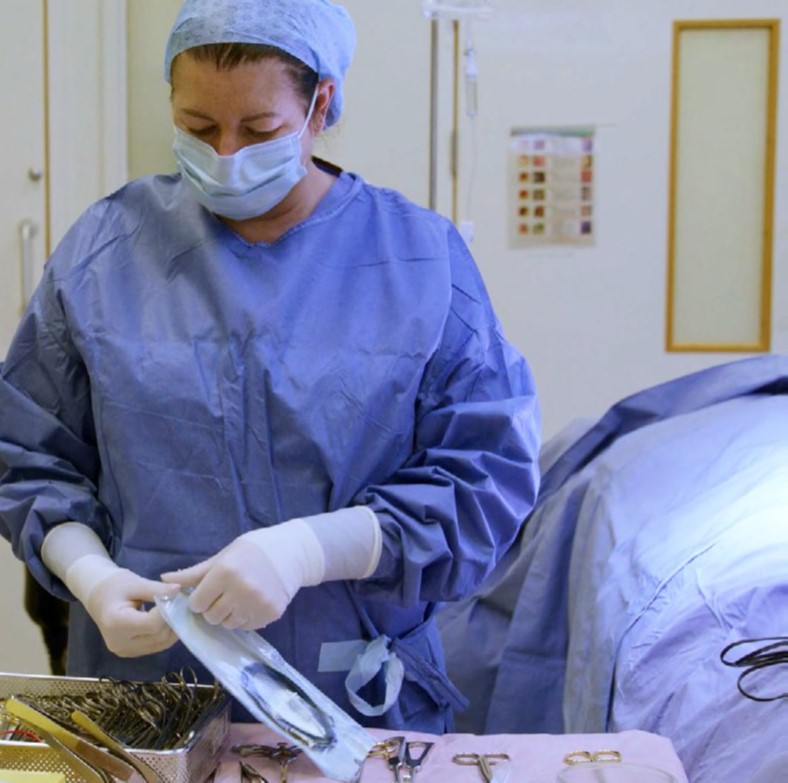Emma Hollick is the Deputy Team Leader for Urology Theatres, at St James’ Hospital in Leeds, she welcomed us into theatre where she plays a crucial role in organising staff and supporting surgeons during procedures
Emma’s role is vital in ensuring the safety and efficiency of operations. She oversees the initial safety checks, confirming the correct patient, site, and surgery to prevent any errors. Her experience allows her to anticipate the surgeon’s needs, often having instruments ready before they are requested.
One of the advanced tools Emma works with is the intraoperative probe, used to check blood flow during major surgeries. This equipment helps locate vessels quickly, reducing surgery time and potentially increasing the number of patients treated. Despite its benefits, Emma acknowledges the environmental impact of disposable medical supplies and the ongoing debate about reusable versus disposable equipment.
Emma describes her role during surgery:
“The intraoperative probe, I have opened the sterile packet, I then pass one cable out to the circulator, which is the non-sterile person. They connect it to the Doppler machine”
Emma continues to say,
“The surgeon will be holding the probe, and this allows the surgeon to locate the vessels quicker than he would normally, which allows for quicker surgery, potentially being able to do more patients on the list because of this equipment being available for us.”
We asked Emma what differences she has seen since the introduction of the Waveform Doppler and Intraoperative surgical probe. Emma notes,
“We would usually plan to do maybe four or five on a list. We could probably do six or seven, which means that our waiting lists are being reduced faster, and our theatres are being, used to their full potential.”
Emma highlights another advantage of single-use intraoperative probes that she perceives as important:
“It’s a useful thing because it doesn’t need to be sent off to be sterilised, I just get a new one each time I want to use one.”
She emphasizes the convenience and safety, noting,
“These are double wrapped, they’re sealed, there’s a sign that says sterile. Obviously if the circulator was to open it and it got dropped on the floor, it would go into the bin, and we would get a fresh one out.”
Download the full PDF
